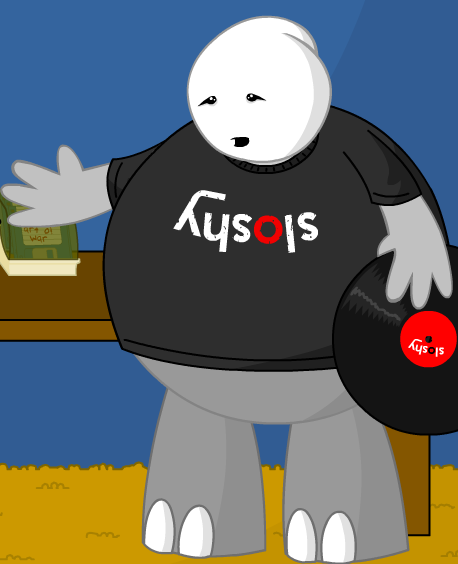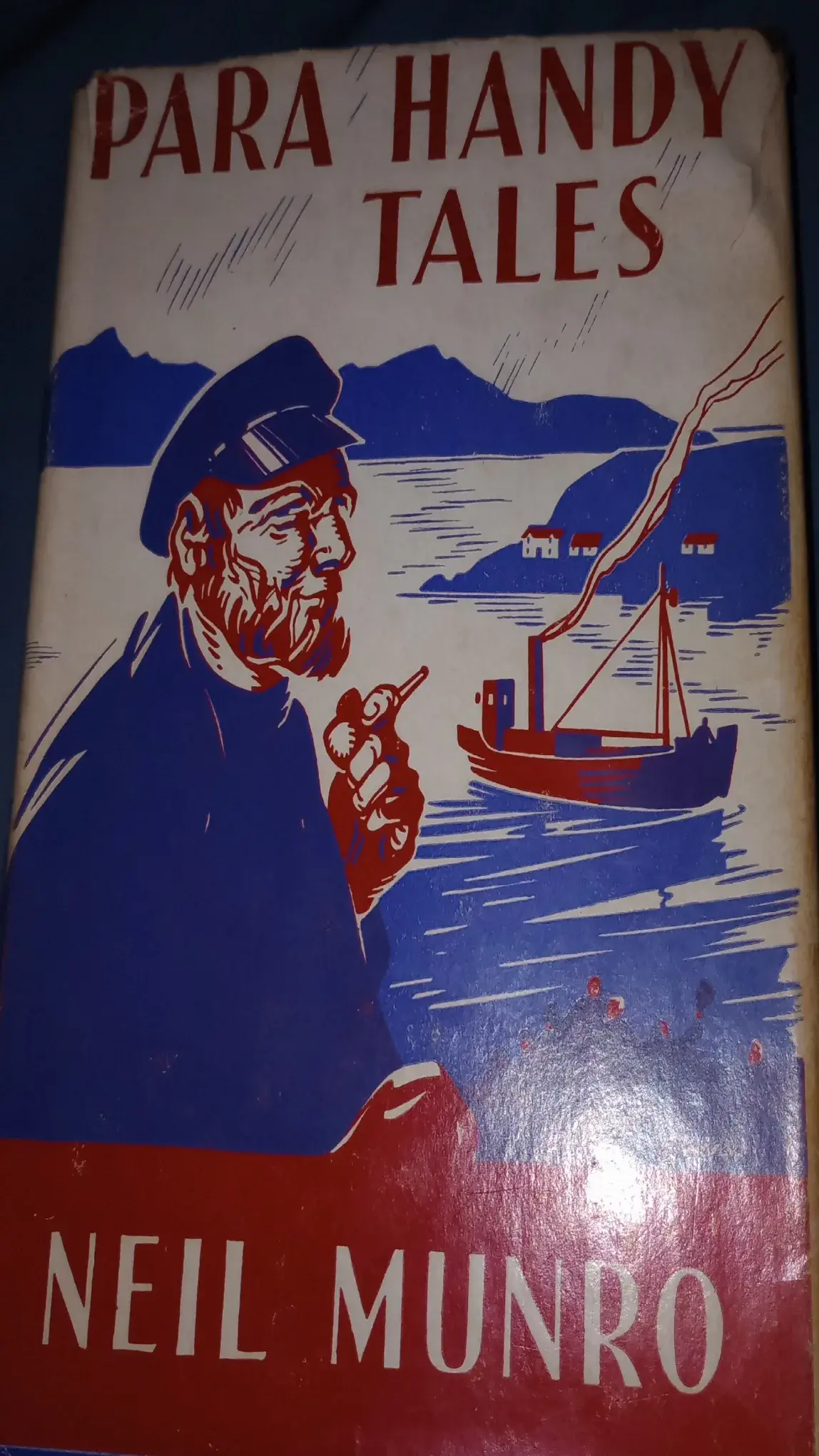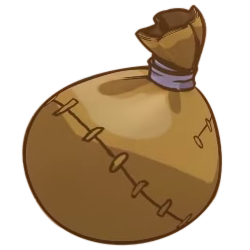In a TrekCulture interview a week ago, Rob Kazinsky, who plays Zeph in Section 31, talked about his reaction to the S13 movie.
He revealed one interesting point from behind the scenes about why the movie was made:
When I got this job, I was like, “Ugh, Section 31 movie, why are they doing a Section 31 movie? It’s gonna be hated from the get-go. No ones gonna want to watch a Section 31 movie. We’re doing a TV-budget movie. This isn’t going to be what people want…” And I spoke to Alex [Kurtzman] and I spoke to Olatunde [Osunsanmi] and they explained to me that Star Trek is dying. And I don’t know if people know that. You know, I was talking about Star Trek at my gym where I fight. You know, I’m a boxer where I fight with a lot of kids - you know, I don’t fight them but train them - none of them knew what Star Trek was. Could you imagine that?
He went on to say that Star Trek had never had a base as big as Harry Potter or Star Wars but the small fanbase was passionate. He says that fanbase is aging and “we are going to lose Star Trek if we don’t bring in new fans, new eyes and new ways of getting people to love the things that we love.”
I think that’s a valid point but Section 31 is not the answer. It’s not particularly interesting for kids (I think) or for adults, whether or not they’re Trek fans already. And for fans, this type of storytelling sacrifices the optimistic ethos (though not immune from criticism along the lines of DS9) that’s at the heart of the Federation and the franchise. And I’m not even arguing this from a canon or gatekeeping point of view. It’s not utlilizing Star Trek’s niche and unique selling point in the market. Why should kids watch Star Trek instead of Captain America, Suicide Squad, or any MCU movie?
Here comes the question: If you’re in Alex Kurtzman’s position, how are you going to sell the franchise to a new, young audience? How are you going to convince kids who spend their time playing Roblox and watching Mr. Beast that Star Trek is a good show to watch?
Un-cancel Lower Decks. 😉
Honestly, though, I feel like most media groups in general forget why the streaming model worked in the first place. They want Office-level hits, but forget that The Office wasn’t immediately successful. Not immediately killing it just because of that gave it time to find a fandom.
Most shows should automatically get 2-3 seasons, and they often aren’t getting that.
As for the whole “none of them knew what Star Trek was” anecdote - I find that a bit exaggerated. I’m a college student, and I wore a Boimler costume for Halloween- most could identify that I was something Star Trek. Around other people my age, they can at least think of Spock or Patrick Stewart.
How I got into Trek as a kid was my mom would be watching it, and she’d let us join even though we were supposed to be doing homework. TNG was the one I saw the most during that.
P.S: As I’ve floated around this forum several times, I think an animated anthology series of strange new crews would be awesome.
I wore a Boimler costume for Halloween
Nice
There are plenty of good responses here already, but to me the main thing in marketing Trek to new audiences would be stop the frigging nostalgia fest.
- don’t circle back to the TOS characters at the tip of a hat. Yes, JJ Abrams, I’m looking at you, but also every other recent attempt at new Star trek movies.
- All the stories around those characters have been told already. Make something new and current within the same universe.
- Don’t shoehorn canon and continuity onto every new show. Having Bones make a cameo in the TNG pilot was cute. Making Burnham a previously unmentioned lynchpin in Spock’s character was… unnecessary. Don’t get me started on SNW.
- The wealth of continuity from previous shows shouldn’t be a namecheck scorecard, but a backdrop that curious current viewers can track down and explore on their own.
Twenty years ago when the BBC relaunched Doctor Who, they played down all the background stuff for most of the first season, only drip feeding lore to the audience.
- The stories, the characters had to be appealing on their own
- The 26 seasons worth of classic Who wasn’t required watching to keep up, but it gave resonance to the new show.
Star trek needs to learn from that approach to focus on good stories and engaging characters — and to aim outside of the established but dwindling fan group by allowing the almost 60 years of canon to play second violin.
Stop trying to be ‘cool’ (or whatever you think is cool). Star Trek was never cool. Just do Star Trek and the right people will find it.
Make it episodic again, focus on the story instead of the action, and basically just do TNG, but with even better sets, costumes and make-up. Stop trying to be dark, gritty and edgy. If there is an over-arcing narrative, make it the B or C plot in most episodes, to keep it episodic by nature.
You’re basically describing Strange New Worlds 😂
I seriously keep forgetting about that one and need to watch it.
Please do. I was surprised to find it really back2theroots. I hope they finish it. And not just 3 seasons please.
And give the side characters some personality! Some of the bridge crew in Discovery literally were just a person in awesome makeup
Reminds me of what I heard from a comedian a while back, about how restaurants slowly lose what made them great in the first place, until they become a poor imitation of Applebees, or similar restaurants, because “that’s what people want”. They then eventually fail, because if you want Applebees, you go to Applebees.
But how is Star Trek not doing so hot if I just read this:
Re runs and free yt uploads of TNG with advertising like “here’s a future we can have, with quality leadership. Keep fighting for decency”
Give them Andor instead of Ahsoka; they need to make more content that speaks to the universal human condition and less about the cool worlds and characters they’ve got. The people want Squid Game and Severance, not another cinematic universe.
A lot of writers seem to have forgotten that scifi uses aliens and new worlds to talk about humans. They just think that scifi uses aliens and new worlds.
It’s more TV is dying and Kurtzman hates Star Trek as a concept and can only write one kind of story. There is this thing we need to find that thing. An entire season about finding that thing.
When star trek is done right it works and gets shared around and does well. The five OG star trek series. Strange new worlds, The Orville Prodigy
It also kills me that Kurtzman misses the entire point of what Section 31 was in DS9. When he said a utopia can’t exist without someone doing the dirty work like S31. That kinda of undermineds the entire point of star trek and If we have gotten to that point star trek is already dead and a dystopian zombie is wearing it’s face.
There is this thing we need to find that thing. An entire season about finding that thing.
Ah yes, the season-sized adventure that feels like a bunch of yak-shaving fetch-quests in an rpg.
we must find the progenitor macguffin, but first we must find the treasure map, but first…
If we look for it we probably see this pattern is common across many trek episodes, but across a season they managed to do it in such a way that feels very obvious and hard to miss.
Yeah an episode is fine if you can put a twist on it but a “full campaign” I mean “Season” of story telling. I would expect more from my group’s DM and he doesn’t get paid.
Free to air. It’s how we all got hooked
Could there be a reboot that decides to go back to the optimistic world view of the original?
It’s not just Trek. Who decided that all SciFi has to be dystopian, brooding, militaristic, or horror?
It’s ironic that if you want Trek with the vibe of the original you have to watch “The Orville”.
We already have Prodigy, Strange New Worlds, and Lower Decks under Kurtzman that are considered “optimistic.” The question is, do kids want optimism?
I’d consider Discovery to be optimistic as well - striving to make the world(s) a better place in the face of conflict, uncertainty, and disaster is still optimism. In fact, it’s arguably the type of optimism we need now more than ever before.
The first season of Picard flirted with similar themes, but I don’t think that series ultimately went anywhere with them.
I agree there’s intention to present optimism and humanism in the face of conflict, but I find the execution to be lackluster. An example that comes to mind is Pike objecting to using mines in season 2 of DIS. He raises the issue directly to Cornwell, saying it’s against Federation values. Then for some reason, the discussion becomes finding out why the Enterprise was diverted away from the Klingon war and ends praising Pike being “the best of Starfleet.” The entire discussion about using unethical weaponry during wartime is sidetracked and left unresolved. The mines are still there on the station, and the responsibility of Starfleet Command for not taking down those Klingon mines is not explored.
Another example is the explanation of the Burn. From interviews I’ve seen, the intention behind the crying Kelpien is to highlight the need to understand and sympathize with people vastly different from you even when the universe is as vast with warp travel impossible. The resolution is Burnham and Saru finding this Kelpien and help him understand his visions and thoughts, calm him down, and make warping safe again. But this Kelpien lacks characterization from the beginning. The audience doesn’t know him that well, and we don’t know why we should sympathize with his personal resolution. It would be much stronger if the cause of the Burn is the Emerald Syndicate, which we have established as a hostile force against the Federation. And we know they have good cause to be suspicious of the Federation from Osyraa’s meeting with Vance. In the show, despite this message of reaching out to the vastly different, the Federation and the Chain never understood each other and resorted to using force. Another good candidate for the cause of the Burn is Ni’Var, which has its reasonable suspicions of the Federation at the time.
I find the execution to be lackluster.
This is, to an extent, in the eye of the beholder, and I’m not inclined to argue too much about taste.
Except. Except.
the explanation of the Burn
I honestly think this is the most “Star Trek” thing the franchise has done in…decades. It feels like it was ripped straight out of TOS, and I absolutely adore it.
Agreed - there are different flavours of optimism. TNG presented a promise that one day, humanity will overcome the petty squabbles and bad ideologies it’s mired in today. There’s a place for that, but I think there’s more appetite today for a focus on how we’ll achieve that future - that we can and will fight for it.
Honestly, if I were pitching a concept to attract some fresh attention, I’d go with a “Star Trek: WW3” series. Set it around 2240 to 2250, feature Khan as a big bad, maybe sprinkle in some E.T. interference a la “Tomorrow and Tomorrow and Tomorrow” to keep that essential sci-fi flavour. You could also mine the Reeves-Stevens novel “Federation” for some inspiration. The point would be to make it feel contemporary and topical, but ultimately show that when that tipping point into Star Trek’s future arrives, we’ll be able to tip in the right direction.
I think there’s definitely room for different tones and ideas, as long as we also have SNW to keep that classic Trek approach alive.
I have a lot of half-baked thoughts about how TNG was more of a product of its time than we realize.
Growing up in the late 80s - early 90s, a lot of us were taught that social injustice were issues of the past, and TNG reflected that perspective.
That…well, even at the time, we were being sold a false bill of goods, and it certainly isn’t the world we live in today.
TNG did try to address social justice issues, but agreed it did so in a way that was extremely of its time. The Outcast is a great go-to example of that. It’s basically an anti-conversion therapy parable, so definitely progressive for its time, but in the process it portrays non-binary gender expression as literally alien to the Enterprise crew.
I have a half-baked thought of my own.
That as the world slides into the maws of oligarchy, we need to see the Star Trek series that zooms in on the transition away from money.
They should face the music of class war with that Trek panache that made them great👌
I think that’s partly why I love and gravitate towards DS9, from the culture wars allegory to analysis of imperialism to the ethics of terrorism and beyond.
I think the beauty of DS9 is you have very different characters evolving together and shows people with different world views can still develop working respect and friendship with each other.
I see this take a lot, but it frankly just doesn’t reflect what I see on the screen. Can you give some examples from the shows that influenced you to form that opinion? I agree DS9 could probably be correctly be considered “dystopian , brooding and militaristic”, sure, but Discovery, Picard and SNW are (if anything) cloyingly optimistic and positive!
Who decided that all SciFi has to be dystopian, brooding, militaristic, or horror?
The Battlestar Galactica reboot caused an awful trend. Other studios clamored to try to recreate its success.
Star Trek was never a show for kids, so it’s not surprising kids don’t know about it. Star Wars and Harry Potter were for kids
Star Trek has always been more about solving things without violence when possible, which means action sequences don’t happen often, so a significant portion of people won’t find any interest in it.
To me, personally, Trek fails at simply not having “anything really going on”. I don’t know about more recent Trek shows, but there’s never anything that feels like a real threat, or any threat that goes beyond 2 episodes. Some of the exploration feels like “Oh, we’re just fucking bored, I guess, let’s see what we can find over that star system”, everything feels unbelievably safe. Sure, Kardassian assholes might capture you and torture you for shits and giggles, you never know when something with literal godlike powers might decide to show up and challenge the crew out of boredom, but that’s not a risk you’re at while exploring a weird world or solving a Sherlock mystery in the holodeck. For comparison: Battlestar Galactica had a permanent worry about (lack of) resources, being a fleet on the run with a single military ship to protect it against an overwhelming enemy and an “anyone could be a sleeping agent of the enemy” conflict. Not everything BSG did was good, but that overall setting and premise permeated everything.
Put another way, what would be the most common answer to “What is Star Trek about?”
I’d say it’s about a lovely utopia where everyone is equal, money and poverty are gone and progression of humanity itself became the main driving force of everyone.
Besides that it’s about many encounteers with new species, discoveries, ethical and moral questions that are (tried to be) solved for the good of everyone. It’s conversation, not conflict. It’s discovery, not extinction. It’s fairness, not exploitation. Et cetera.
And I’d counter your argumrnt. There always is some looming threat. Voyager has a gazillion of enemies, the ever hanging threat of never coming back home and being stranded for good. TNG had…well…the Borgs? Sure, there are many soap-opera-moments, like the sherlock Holmes holodeck filler-episodes, but they’re not defining elements I’d say.
Star wars is like a western in space. Pew pew instead of bang bang. No wonder it’s so much more loved than trek.
We just need more star trek memes to take over and we’ll save star trek

This is what brought the prequels back from the dead.
They really need to find ways to get Star Trek to an audience beyond Paramount+
Hell, why not put the new shows on normal TV a couple of years after they air online? I know fewer people watch traditional TV these days, but it’s still a way to get the show out to a more general audience
Sorry, I don’t care what Kurtzman says about this (or an actor that is obliged to defend a project he was in) when it’s justifying putting out schlock for mind share. If that’s the best we can do, let it die - it doesn’t make anything that exists any worse.
Trek needs a good show that stands alone and isn’t aimed at us but a fresh audience. That means no cameos, limited references, not animated (that is a stigma as much as I love LD), and actually taking the time to get people invested.
Basically, they needed Discovery to not be garbage. I know non-Trekkies that were actually excited for a new sci-fi romp and got turned off almost immediately by the nonsense writing. Not the cast, or stupid out of universe concerns about being “woke” or some shit, just plain out “this makes no sense and isn’t fun to watch” and it was hard to disagree.
Everything since then has lived in Discovery’s shadow in terms of new audience and has mostly dealt with that by being aimed at fans of 90s Trek and nobody else. Prodigy may be an exception here, but that suffers from being oriented at kids.
I agree in some senses with the stand-alone part, but not necessarily the animated part. I feel like it would just need to be marketed right. Executives are convinced for the most part that animation is either only for kids or for irreverent adult comedies, when it really should be viewed as a general medium.
I think Infinity Train is the best evidence of my point (look it up if you don’t know); it really transcends the typical bounds assigned to animation. Book 3 especially is truly just a great fantasy/sci-fi drama. However, it was basically killed by executives who wanted a tax write-off and couldn’t see its potential outside a “kids show”. Now some of the series is purchasable on various online storefronts, but the only way to watch all of Book 3 is to pirate it.
If executives and people alike would liberate themselves from the stigma of animation, I feel like you could pull off high-quality, TNG-length seasons that allow less rushed charater development for a reasonable budget compared to an expensive live action streaming show. In some ways, Prodigy was an example of this - I felt like I got more time with the characters than almost any other modern Trek (granted SNW is still going on).
I’ve never met a person where I mentioned Star Trek and they went, “Ew, Discovery. I’m never watching any Star Trek ever again”; I think Discovery had its flaws (and strengths), but it made little impact on franchise popularity.
Usually (which you touch on), it’s more like they’re just bamboozled by the cannon. Like, I was watching DS9 once, and my roommate asked if it was the original, which then brought a long and complicated explanation from me. I think you’re right that it’d be very nice to have a Star Trek show that one could show to people where when old lore is brought in, it’s delivered in such a way that people can pick it up as they go.
Is SNW even still a thing? We still have no date for S3 for nearly 2 years now.
They’ve said it’s coming in early this year - there’s literally a clip of it out: https://m.youtube.com/watch?v=llvMv5-ydyQ&t=150s&pp=2AGWAZACAQ%3D%3D. It definitely looks near done.
Also, season 4 seems to already be in pre-production.
Nice
Yes? It’s been renewed, and should premiere this year.
Season 4 has been confirmed as well. It’s true that there was a longer gap between seasons 2 and 3, but that’s when the Hollywood strikes fell, so it’s not surprising.
I think the sensibilities of the audience has shifted since the new millennia. Multicam feels claustrophobic to the modern audience and that’s one of the main aesthetics of retro trek.
The other thing is that every Trek series, aside from DS9, depicts a pretty rigid, hierarchical, militaristic environment. Maybe not as much as Klingons or Cardassians but I think this setting, the nomenclature, the general vibe is becoming alienating to a modern audience. Keep in mind, people have become highly cynical toward predominately white and Westernized institutions, and the Federation is very much that. It feels like America with Aliens on board. English is the only language ever really spoken aside from some alien languages.
In my opinion, there needs to be a show that pulls heavily from DS9 while maintaining some of that optimism and sincerity we love from retro Trek. It needs to oscillate between these juxtaposed tones. The show should be told from the perspective of multiple equals that make consensus based decisions instead of a primary Captain like Picard, Sisko, or Janeway who supersedes all decisions. Everyone has specific roles but there is no hierarchy.
Also, remove the white savior element that retro Trek holds over many of the beings they come across in the franchise. The group, whomever they are, would be far more interesting as some kind of nomadic space commune that is extremely removed from federation involvement. If anything, I’d say at most there is one person with ties to the federation but perhaps they left for unknown reasons providing rich backstory and future storylines if they do come across the federation.
This perspective is more akin to the actual lens the average viewer sees the world. We are not making cosmic decisions, we’re just trying to survive. And, when we see the government, we see a dark looming presence hovering over us, trying to tell us the best way to live our lives, and it’s fucking annoying, right?
That should be the New Trek.















